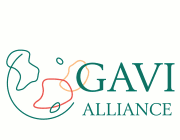 |
|
|
The GAVI 2003 work plan Documents Strategic Framework Approved GAVI 2003 work plan report Cover note (
PDF - 29K) Overview The 2003 work plan report has shown that positive and intensive collaboration between partners has not only ensured a clear picture of the on-going country immunization efforts, but also guaranteed appropriate support for countries to increase their immunization levels and improve their prospects for long-term financial sustainability. Summarizing, the main achievements of the 2003 work plan were:
The GAVI work plan experience has shown that partners had major difficulties in reporting back on total expenditures of partner contributions. According to the World Bank and WHO, requesting reporting on financial expenditures from agencies’ own partner funds is extremely complicated due different activity categories, accounting and reporting systems and financial years. The structure of the 2003 work plan reflected the way the Alliance functioned in that year. Three of the task forces were discontinued in mid-2003 and the respective host agencies had to take the responsibility for the formal reporting for those areas (WHO for the Implementation Task Force (ITF) and the R&D Task Force (R&D TF), UNICEF for the Advocacy Task Force (ATF). The experiences from the 2003 work plan were fed into the continued efforts of the Alliance. Thus the R&D task force efforts were continued in the form of the Accelerated Development and Introduction Plans (ADIPs), the regional working groups focused more on coordination and support to countries, the financial sustainability work is on its way to transition to partners. In advocacy and communications the GAVI secretariat and The Vaccine Fund management are taking on greater responsibilities. |
|||||||
|
|
|
Copyright © GAVI |